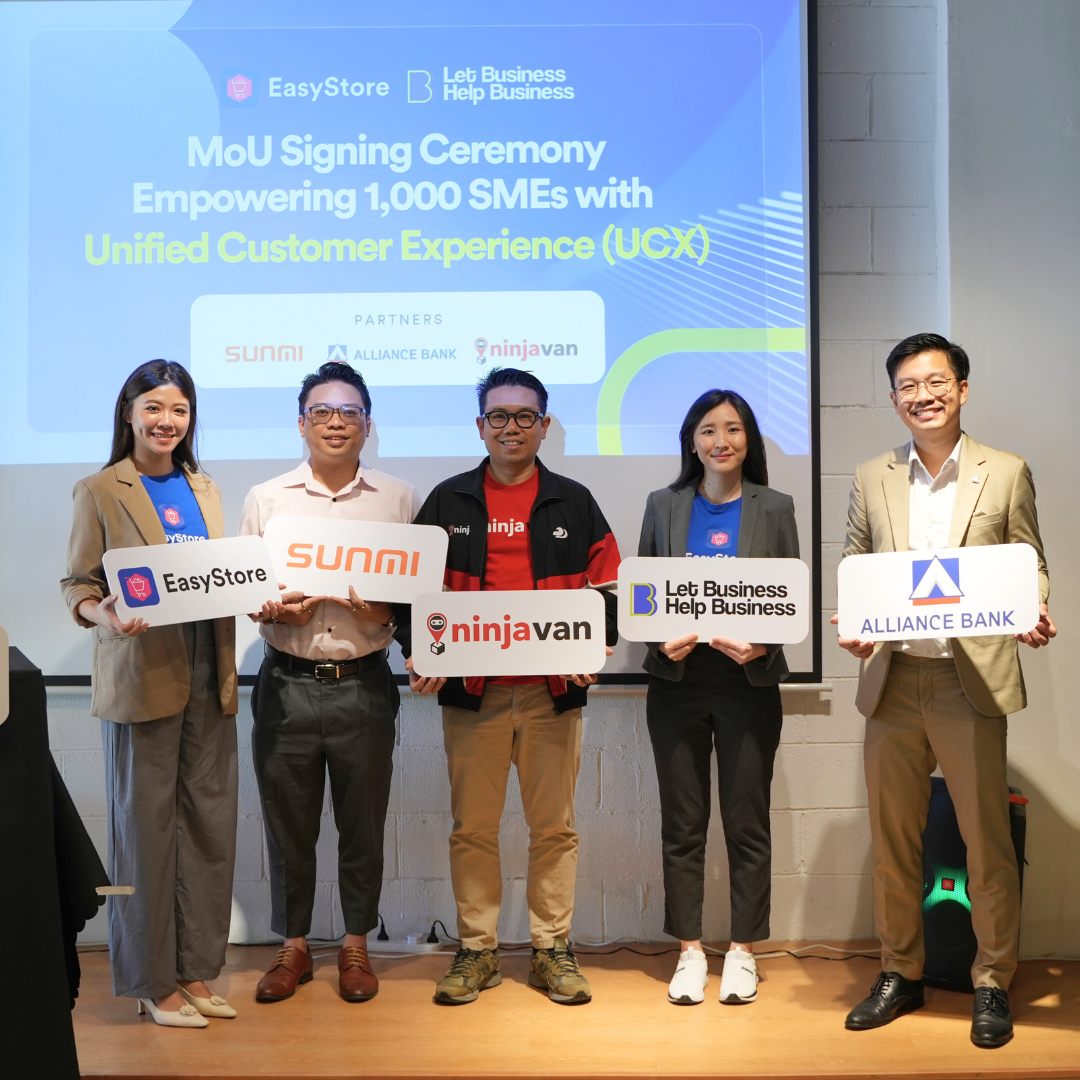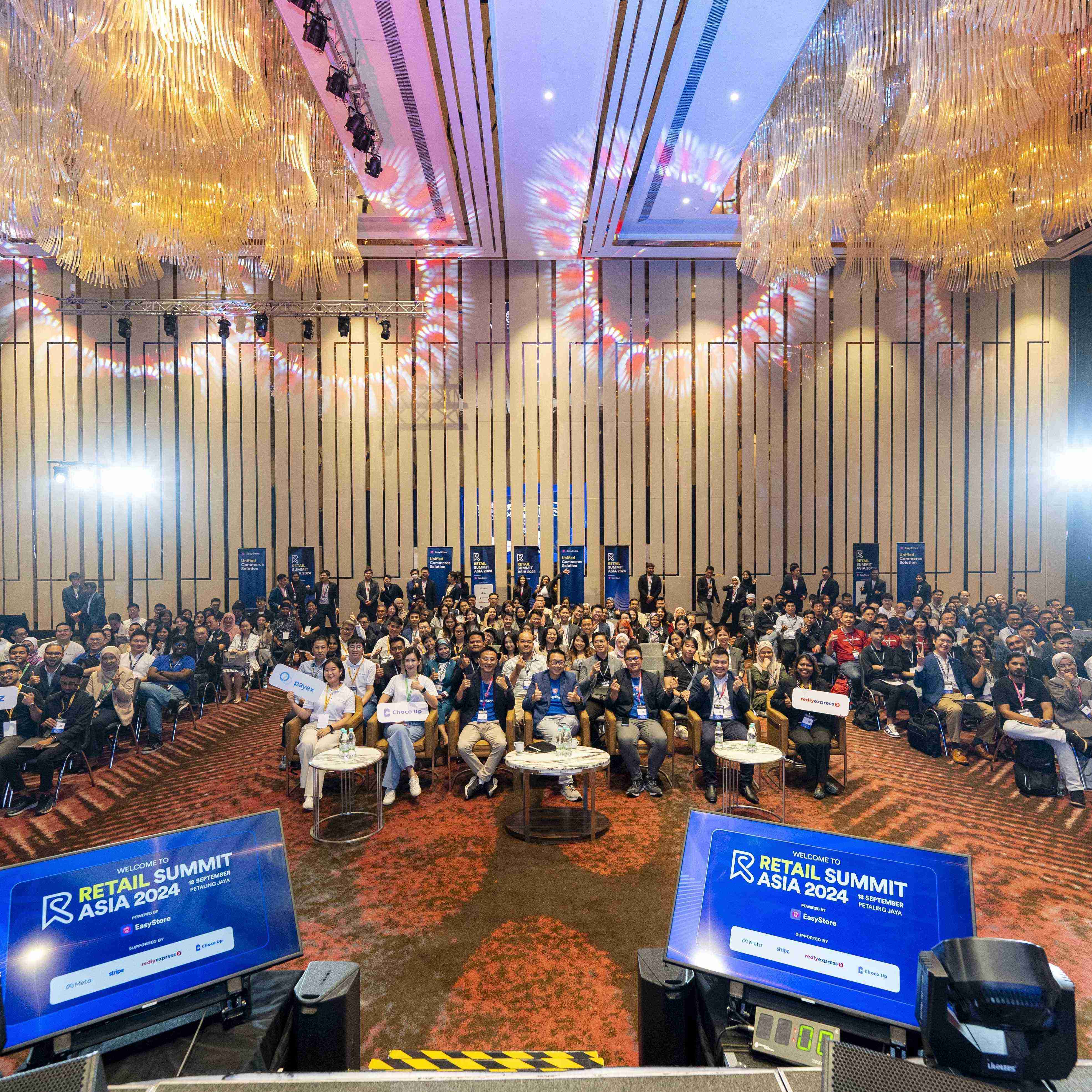What Malaysian Retailers Must Know About Budget 2024
By Kelie Wong · 28th February, 2024

Key Highlights of Budget 2024
On October 13, 2023, Prime Minister Datuk Seri Anwar Ibrahim unveiled the 2024 Malaysian Budget, recognized as the second Madani budget and distinguished as the largest in the nation’s history, boasting an allocated budget of 303 billion ringgit (US$64.7 billion).
At the heart of this budget is a strategic focus on catalyzing the digital transformation of small and medium enterprises (SMEs) while encouraging the embrace of automation. The government envisions SMEs not merely as enterprises but as dynamic entities capable of harnessing digital tools to foster growth and innovation, ultimately steering them towards sustainability.
For retailers, understanding the nuances of Budget 2024 is paramount. The government's emphasis on digitalization and automation underscores the need for businesses in this sector to adapt, paving the way for a more competitive and sustainable future. Here, we highlight key aspects of the budget that every retailer should be aware of.
1. Business Grants and Initiatives
The government's focus on advancing the digital economy is evident through various initiatives:
- MSME Financing: RM2.4 billion is allocated for micro, small, and medium enterprises (MSMEs), offering potential financing for technological upgrades and improvements.
- Digital Grant MADANI: A total of RM100 million is allocated to provide digitalization grants of up to RM5,000 for over 20,000 SMEs, facilitating upgrades to digital sales, inventory, and accounting systems.
- Shop Malaysia Online: RM40 million is dedicated to implementing the Shop Malaysia Online Program, encouraging small traders, especially in the food sector, to embrace e-commerce.
- Strengthening PEDI: An allocation of RM25 million will enhance the role of Digital Economic Centres (PEDI) in each State Legislative Assembly, supporting SMEs, especially in rural areas, to sell products online.
- Accelerated Capital Allowance (ACA) Adjustment: The period to claim ACA for ICT equipment and computer software packages is reduced to 3 years from 4 years.
2. Mandatory E-Invoicing:
- Transition to E-Invoices: The Inland Revenue Board of Malaysia (LHDNM) will only accept e-invoices starting August 1, 2024, for taxpayers with annual income/sales exceeding RM100 million. Full implementation is set to be completed by July 1, 2025.
- Tax Identification Number (TIN) Expansion: E-invoices will be supported by the expansion of the Tax Identification Number (TIN) to reduce leakages.
3. Taxes:
- Service Tax Increase: Service tax rises from 6% to 8%, excluding the telecommunication and food and beverage sectors. Scope expansion to cover logistics, brokerages, insurance, and karaoke.
- Capital Gains Tax: Local companies disposing of unlisted shares face a 10% capital gains tax starting March 1, 2024, with exemptions for specific conditions.
- Imminent Global Tax: A global tax is anticipated by 2025 for companies with a global income exceeding EUR750 million.
- Luxury Goods Tax: A tax on luxury goods will be introduced at rates ranging from 5% to 10% on specific high-value goods such as jewelry and watches, based on certain thresholds. The implementation date for this tax has yet to be announced.
- Tax Deduction for Environmental, Social, and Governance (ESG) Related Expenditures: ESG, evaluating sustainability practices, incurs additional business costs without current tax deductions. To align with sustainable development goals and Ekonomi MADANI, a proposal suggests offering a yearly tax deduction of up to RM50,000 for ESG-related expenses, encouraging corporate adherence.
4. Sectoral Opportunities and Support:
- Increased Funding for Education and Health: Significant allocations for the Health Ministry (RM41.2 billion) and Education Ministry (RM58.7 billion) present opportunities for SMEs in healthcare, education, and related services.
- TVET Funding: Budget 2024 allocates RM6.8 billion for Technical and Vocational Education and Training (TVET). Aimed at upskilling and training, this initiative enhances skills development, ensuring the nation's competitiveness in a digitalized global economy.
This comprehensive overview of the 2024 Malaysian budget outlines key measures and opportunities for businesses to navigate and leverage in the coming fiscal year.
The Complete Solution For Seamless UCX
EasyStore is a unified commerce solution designed to unify online and retail customer experiences. Over 50,000 brands have grown their businesses by embracing UCX through EasyStore, providing customers their desired Unified Shopping Experience.
Provide a seamless shopping journey with consistent product and service offerings. Enhance customer convenience, encourage frequent returns, and expand the brand's presence across multiple sales channels.
- Shopping Freedom: Allow customers to choose their preferred shopping environment: app, mobile, or web. Offer a seamless experience across platforms to enhance customer loyalty.
- Passwordless Buying: Provide hassle-free login options with email or mobile number. Streamline the entry process for quicker decision-making and purchases.
- Rapid Shopping Journey: Save customer shipping details for an effortless repurchasing experience. Encourage more frequent orders by valuing the customer's time.
- Deliver Excitement Anywhere: Accommodate customer preferences for home deliveries or in-store pickups. Flexibility in delivery options can be a decisive factor in the purchase decision.
- The Path to Lasting Loyalty: Ensure a consistent experience between online and offline shopping. Build trust by offering a harmonized experience, encouraging repeat business.
- Different Staff, Same Experience: Present a consistent face to customers, whether in-store or online. Elevate the shopping experience and solidify the brand's reputation.
Over 50,000 brands use EasyStore to unify their retail and ecommerce business.
Request a demoLatest articles
-

May 2025 Product Updates
By Cavan Koh · 6th May, 2025
-

April 2025 Product Updates
By Cavan Koh · 14th Apr, 2025
-

March 2025 Product Updates
By Cavan Koh · 10th Mar, 2025
-

How These Retailers Use UCX to Prepare for Ramadan—and Keep Customers Coming Back
By Frost Chen, Poh Sook Yan · 3rd Mar, 2025
-

1,000 SMEs to Benefit: EasyStore and Partners Sign MoU to Empower Unified Customer Experience (UCX) for Retail and Ecommerce
By EasyStore Press · 27th Feb, 2025
-

Let Business Help Business Supports Over 1000 Local SMEs Across Malaysia
By Amirul Asraf · 16th Feb, 2025